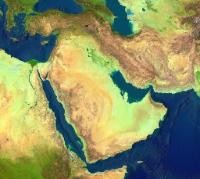AMMAN, Jordan -- Little more than six months ago, the government of Jordan broke some most unwelcome news to the population. As oil-rich neighbors nearby basked in fantastic wealth from seemingly unstoppable jumps in oil prices, importers such as Jordan could barely cope. The government in Amman decided it could no longer afford oil subsidies. Almost overnight, fuel prices took off, some rising more than 75 percent. Before long, the cost of food followed suit, with some staples quickly doubling in price. The shock has not quite worn off, but suddenly things are changing. Now that oil prices have rediscovered gravity and started falling back to earth, Jordanian drivers look happier than they have in a long time. Not far from here, meanwhile, in the oil-exporting countries where smiles abounded not long ago, the threat of financial disruption looms large. A reversal of fortunes is in the offing. Last week, Algerian President Abdelaziz Bouteflika sent a dire warning to his people. The OPEC member relies on oil and gas for 95 percent of its export income, which provides the bulk of government funding in a highly centralized economy. With the price of oil slashed in half in just a few months, the president cautioned, much could change. "A collapse of the oil prices would push us into a great problem and each one of us is called upon to roll up his sleeves," Bouteflika told the country's main daily, Al Khabar. Export income was supposed to fund ambitious programs aimed at reducing poverty, unemployment, and housing shortages. Now the government may have to rethink those plans. Bouteflika is unusual in his willingness to acknowledge that a problem is emerging just over the horizon. Other leaders of oil exporting countries breezily minimized a threat that could produce social, political and economic disruptions.
World Citizen: No Silver Lining for Oil Exporters

